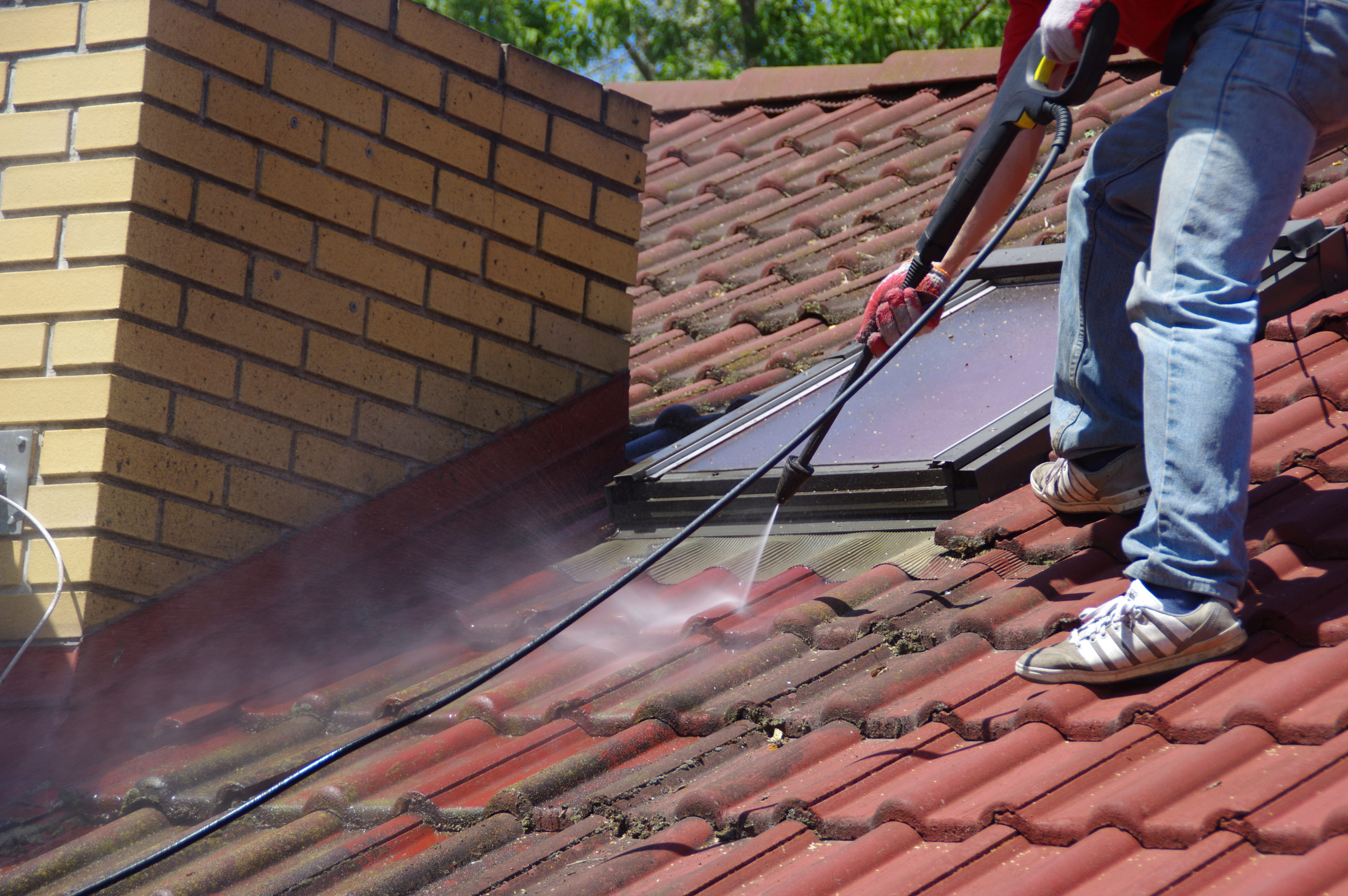Blog
- Details
- Hits: 226
When you’re selling your home, you may be considering what fixes you need to do and what you should leave for your eventual buyer to do themselves.
It’s always best to ensure your home is in tip-top condition before you put it on the market, but if there are lots of niggly jobs to do, you should prioritise those that will make the biggest positive impression on potential buyers.
In our experience, garden fences are often one of the things that sellers query, particularly if they are in poor condition.
To help you, in this article, we’ll explore four key things you should consider if you’re a seller, wondering, “Should I replace fences before selling a house?”
- Where is the fence?
Let’s take it from the top! Firstly, where is your fence, and how visible is it? Is it hidden behind a shed and shrubbery? Or is it in your front garden and rather obvious to everyone passing?
While a fence in poor condition is likely to be noticed by a potential buyer during a viewing, it’s important to consider how obvious it is before deciding whether to repair it.
Take into account too that for security reasons, a broken fence in the back garden can be more of a concern than one at the front of the house.
- What is the condition of the fence?
Be honest, how bad is the fence?
If it’s a back garden fence, is the entire fence falling apart? If it’s in the front garden, does it severely impact your kerb appeal?
Ask yourself how concerned you’d be with the fence if you were a viewer to your home.
- Does it Impact Security?
This is an important aspect to consider. Does the broken fence make your property less secure? Does it make it easy for burglars to gain access to your back garden and, therefore your house?
A fence in poor repair at the front of the house may be less of a concern for potential buyers as a side or back garden fence will be – particularly if your property backs onto fields, a park or an alleyway.
- Who is your target market?
- Is your property targeted at first-time buyers?
- Families?
- Property developers?
- Or someone looking for a fixer-upper?
Understanding your target market will help you determine whether it’s worth the upgrade to your fences or not.
For example, if your target market is property developers, someone looking for a fixer-upper, or even a first-time buyer, these buyers may upgrade things themselves.
However, if your target market is a family with children and pets, a back garden fence with holes in it could be a serious concern.
Get Expert Advice
At Warren Powell-Richards, we are your local property experts. If you’re thinking about selling your home and are currently preparing it for sale, our friendly team are happy to answer your questions and help you determine your target market. Pop into the offices or send us an email at This email address is being protected from spambots. You need JavaScript enabled to view it. to learn more.
- Details
- Hits: 234
Which Fittings And Fixtures Will Be Needed After Moving Out?
If you’re ready to sell your home, you may be wondering what you must leave behind when you sell your property. It’s often hard to decide what to leave behind and what to take with you when you move out. In fact, there aren’t any laws to dictate what you must leave within the property, but it goes without saying that your buyer may be upset or angry if they don’t know what you’ll be taking with you.
It’s helpful to think about what you expect the property’s former owners to leave behind when you’re buying their home. Which fittings and fixtures will be needed after moving out? Once you’ve decided, put it all down in writing then confirm the buyer’s agreement, and remember the house has to be empty on completion day.
As expert estate agents, our team at have some great advice about what you may want to leave when selling your home.
An Inventory Of Fittings And Fixtures
To avoid disputes and confusion, an inventory that explains specifically what will be included within the sale and what you’ll be taking with you is very helpful. You should complete this and agree on it early in the process as, without there being an inventory in place, many buyers assume all fixtures and fittings are going to be included in the sale.
Fixtures are any items permanently fixed to the structure of the property such as bathroom and kitchen suites, inbuilt wardrobes and cupboards, plugs, light fittings, radiators, and boilers. Fittings are any freestanding items, or items hung on a nail or hook such as lampshades, mirrors, carpets, ovens, washing machines, freestanding fridges, curtains, beds, curtain rails, sofas, and freestanding furniture. If you want to take or leave any specific fixtures or fittings, try negotiating with your buyer.
What About Lightbulbs?
There’s no legal obligation to leave the lightbulbs behind when you move out unless it’s stated specifically in the contract. However, many sellers choose to leave them since it’s a little petty to remove them and most home movers would like to think that the ‘leaving the lightbulbs in’ option will continue down the chain! You must, however, replace or leave light fixtures when you move out since exposed wires represent a hazard.
Do I Take The Wheelie Bin With Me When I Move?
When moving out, you should never take the wheelie bin! You’ll have a bin at your new home, and it’s very unlikely that the people who will be moving to your property will bring one with them. It’s also generally acceptable to have some rubbish left behind in the bin when you move out. If you do this, though, make sure that there’s enough space remaining inside the bin so that the property’s new occupants can add their own rubbish to it until bin collection day. If there is excess rubbish, it should go to the dump.
If you’re ready to sell your home and are looking for an experienced estate agent to list your property, please call us, email us or pop into one of our friendly high street offices.
- Details
- Hits: 213
Preparation Is Key To A Successful Home Move With Children
Moving house can be a stressful experience, but if you’re moving with kids, that piles on the pressure even more. If you’re stressed, your little ones can easily get overwhelmed, too, so knowing how to minimise the hassle is crucial.
Luckily, we have some helpful advice for home movers looking for tips and tricks to simplify their move.
- Talk To Your Kids About The Move In Advance
Your children may not understand precisely what you mean when you tell them that you’re “moving house”, so make sure you’ve taken the time to explain clearly to them what to expect on moving day. Many young children become anxious about leaving behind the comfort of their old home and find the prospect of moving into a strange, new home daunting, so preparation is vital for a successful move.
- Visit The New House With Your Children
Take your children to see where they’ll soon be living, show them their new bedroom and explore the new area they’ll call home. This will help them feel comfortable with the coming changes.
- Encourage Your Children To Share Their Thoughts
Explaining to your children what will happen on moving day is essential, but it’s just as vital to listen to any concerns they have. Ensure you answer their questions thoroughly and honestly and reassure them about any worries they’re experiencing.
- Choose The Right Moving Day
Choosing the right moving day can be difficult, but if you put some thought into it, your children will have a better experience. While deciding to move during the summer holidays may seem like a good idea, it can often be easier for children to move during the term time since being at school or nursery helps to occupy their minds while allowing you to get things done without them getting under your feet!
- Make It A Game
A top tip for moving home in Grayshott with your youngsters is to make the lead up to the move, and the day itself, into a fun game. This makes moving home more enjoyable for all of you and helps your children engage with the process. Let your children pack some of their belongings, label boxes or pack a special box to help your pets move too!
- Don’t Pack Essential Items
Although packing everything correctly is vital to minimise the risk of loss or damage during a move, you must also consider your children’s needs. If there are any items they can’t manage without, such as a specific cuddly toy, leave it out of the packing boxes so they can keep it with them throughout the move for comfort.
- Settle In Quickly
Settling your children in their new home in Grayshott as speedily as possible gets you all off to the best start, so making sure you know where all the familiar items that your children know and love are, is key. Getting those essential items unpacked immediately makes them feel comfortable and at home. Make sure to stick to familiar routines, too – sticking to traditional bedtimes is an excellent way to demonstrate that living somewhere new doesn’t mean everything has to change.
If you’re still searching for the perfect property for your family, check out the Warren Powell-Richards website at https://www.wpr.co.uk or pop into one of our offices for a chat.
- Details
- Hits: 168
Catching Any Issues Early Is Imperative
As a homeowner you’re no doubt already aware of how important your property’s roof is. However, despite knowing its importance, you may not know the first thing about roof maintenance! The expert team here at Warren Powell-Richards have a few top tips to help you keep your roofing in the best possible condition.
What Should I Check for and When?
Catching issues before they get out of hand is imperative when it comes to roof maintenance. Carrying out inspections regularly is the best course of action to ensure nothing gets overlooked. Checking at least twice yearly is wise, with spring and autumn being the optimal seasons. You should check for:
- Broken or missing slates or tiles
- Misaligned or broken guttering
- Flush flashing around dormer windows and the chimney
- Any growth of algae or moss
- Sunlight shining through to the inside
- Watermarks on the insulation or timber
- Signs of mould or decay
- Signs of sagging or damage
If you spot a problem, you should arrange for a repair as quickly as possible.
Clean The Gutters
If the gutters are kept clear, they’ll be able to channel water quickly away from your property. Check them more regularly during autumn as they can get blocked very quickly.
Clear Roof Debris
If you have a flat roof, debris may accumulate on it. You may even find the same problem if you have a pitched roof. Not only is debris build-up unsightly, but it can also potentially damage your roof, so clear it away quickly.
Trim Trees
Leaves dropping into your guttering and onto the roof will cause problems, and twigs and branches may cause damage to your roof during storms or high winds. Keeping trees back from the property is always a good idea.
Eliminate Moss
Moss may appear to be harmless, but it causes significant issues. A large patch of moss will hold lots of water which, in turn, can rot your roofing materials or cause cracked or dislodged tiles. Eliminating roof moss will protect your roof from damage.
Making Roof Maintenance Your Priority
Carrying out regular checks to the inside and outside of your roof is essential for all homeowners, and often, hiring a professional roofer is the best way to make sure you can achieve this safely and efficiently. Climbing onto your roof can be dangerous and may be best avoided if you lack the necessary experience.
Although you may need to pay for a roofer to maintain your roof, it’s money well spent in the long run as regular inspections will ensure that no potential problems get out of hand resulting in a huge bill in the future. Also, if you’re planning to sell or rent out your property, you need to be confident that the roof is in solid condition for prospective tenants or buyers.
If you’re considering selling or renting out your property, don’t hesitate to get in touch with the team here at Warren Powell-Richards. We can help you find the perfect tenants or list your property for sale on the market. Email This email address is being protected from spambots. You need JavaScript enabled to view it. or pop into one of our offices to meet the team.
- Details
- Hits: 178
So you’ve moved home, you have the keys, you’re in, and the kettle and mugs have been unpacked. Sure, you’ve got boxes here, there and everywhere, but at least you’ve finally moved and are happy!
It’s time to start a new chapter in the house of your dreams. But, you don’t want the dream to turn sour, so we suggest that after making a cup of tea and getting settled in, you should do some standard safety checks.
Why? Because you need to ensure your home is safe and isn’t going to cause you any issues.
So, what should you be checking? Well, we’ve put together a list of seven safety checks you should make when you move into your new home.
- Check the Windows and Doors
First things first, safety and security go hand in hand. Walk around your property and look at the windows and doors, noting whether they have safety catches on them or security locks. If they haven’t, put it on your urgent “to do” list. With your external doors, many new occupiers choose to change the locks as you never know where a spare key has gone in the past.
Top Tip: Write a list and work through it methodically – it’ll save you time in the long run!
- Check the Water and Electrics
Now, this really is something you should do as soon as possible. Even if your property is brand-spanking-new, you need to know it is as safe as houses.
- Look for the stop cock
- Note where the fuse box is
Should you need to take action in an emergency, you should know where important things are located. You should also look at the plug sockets and wiring to make sure all is correct.
Top Tip: If any work needs doing, you may need to get a more competent, professional tradesperson to help you – particularly with the electrics.
- Check the Appliances
Your new home may have appliances already in-situ. A washing machine, for example, or an oven. It saves you time and expense, of course, but you should check them over to ensure they are safe to use.
Top Tip: When you’re looking around a potential new home, you should always ask to see the appliances working if they are included.
- Look Around the Garden
Look at those roses there, and that lovely fence, oh and that old tree in the corner. But wait. Is your new garden actually safe?
- Are your little ones going to be able to toddle through the gate?
- Will they know the dangers of the small pond?
- Is that old tree safe, or should you get someone in to assess it and lop a few rotten branches off if necessary?
- Are there gaps in hedges where your dog could escape?
Top Tip: Do a complete audit of the garden. It’s better to spend an hour checking everything than spending a lot longer having to deal with an emergency.
- Is the House Childproof?
We don’t need to explain why child safety should be paramount. You should walk around the house to ensure everything is in place to help keep your children safe. This includes safety catches on cupboards, padlocks on areas where things like cleaning products are stored, locks on front and back doors and side gates and stairgates.
Top Tip: Little people are curious and will stick their fingers in everything! Most hardware stores carry home safety packs that include plug socket covers and cupboard catches. Keep a spare set so you are always prepared.
- Check the Smoke Alarms
Safety is a priority, and alarms alert you to danger. Make sure there are working batteries in the smoke alarms and in the carbon monoxide alarm. If it is a wired-in smoke alarm, test it. Make sure your family know what they are for, what they sound like and what they should do if they hear them.
Top Tip: Test all your alarms monthly without fail.
- Plan an Emergency Escape Route
You’ve done all the safety checks but, what happens if something goes wrong and you need to get out of your property? You should plan how you and your family will escape from the house in an emergency. You need to think about routes and who is responsible for whom, and where to meet up when you’re outside.
Top Tip: Having a plan can save you time, and in an emergency, time is of the essence. Make sure the whole family knows the plan and practice it if you need to.
Warren Powell-Richards are your local property experts emails us at This email address is being protected from spambots. You need JavaScript enabled to view it.










ALTON | FARNHAM | GODALMING | GRAYSHOTT | HASLEMERE | LONDON